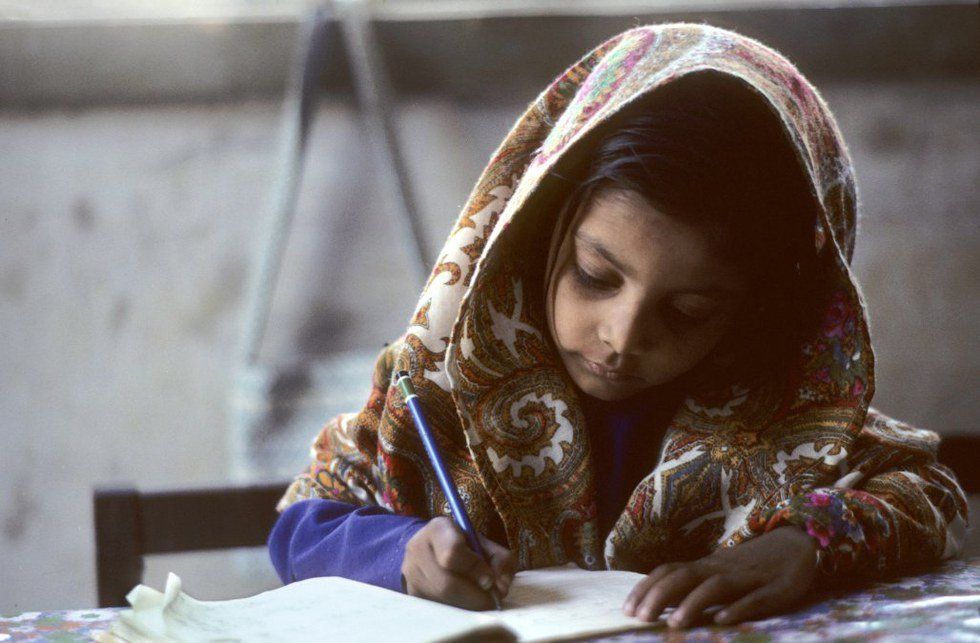The world's 1.1 billion girls comprise a powerful constituency for shaping a sustainable world that’s better for everyone. They are a large percentage of a vibrant generation poised to take on the future. They are brimming with talent and creativity, yet their dreams and talents are thwarted by discrimination and a lack of equal opportunity. For million of girls across the world, basic human necessities are deemed unattainable,and they are forced to live their lives compensating for their burdens rather than living up to their true potential as active members of their communities. To make matters worse, there are glaring gaps in knowledge and data about the specific challenges that girls and women face; it is only through a focus on using girl-relevant, sex-disaggregated data that we can accurately identify and combat the issues that young girls face today.
With this central idea in mind, the theme for this year's International Day of the Girl Child, observed by the United Nations on October 11, is “Girls’ Progress = Goals’ Progress: A Global Girl Data Movement." The theme represents a call for action for increased investment in analyzing and collecting girl-focused data. One year into the 2030 Agenda for Sustainable Development, it has rapidly become evident that improving data on girls and addressing the issues that are holding them back is critical for fulfilling the Sustainable Development Goals (SDGs).
"If effectively supported during the adolescent years, girls have the potential to change the world — both as the empowered girls of today and as tomorrow’s workers, mothers, entrepreneurs, mentors, household heads, and political leaders," wrote the U.N. in a statement on its official site. "...However, there has been insufficient investment [so far] in addressing the challenges girls face when they enter the second decade of their lives."
While the data that is currently available to the global community on the plight of young girls may be limited, it is certainly daunting; research shows that one in three girls in developing countries get married before they turn 18. If present trends continue, 150 million girls will be married before their 18th birthday over the next decade; this averages to a terrifying 15 million girls each year. At its heart, child marriage is rooted in gender inequality and the belief that girls and women are somehow inferior to boys and men. In many communities where child marriage is practiced, girls are seen as burdens to their families. Marrying a daughter at a young age is viewed as a way to swiftly and conveniently ease economic hardship by transferring the encumbrance of having a daughter to her husband's family. For the millions of child brides across the globe, one decision by their patriarchal society opens the door to a plethora of issues and slams the door to opportunity shut. Girls who are child brides miss out on education, are more vulnerable to physical and sexual violence and bear children before they are physically or emotionally prepared. The cycle of violence that begins in girlhood carries over into womanhood and across generations.
Of utmost importance to the global community and social reformers is the need to alleviate the roadblocks to girls' education, including child marriage. Even in the 21st century, girls still significantly lack behind boys in access to education. At least 65 million girls are recorded to be out of primary and secondary school, missing out on the opportunity to gain vital life and career skills. Of the 774 million illiterate people in the world, two-third of them are female. Not only is this unjust, it is also a massive waste of human potential with global consequence. Staying in school longer means that she is more likely to build a smaller and healthier family, lower her probability of contracting HIV and earn a higher wage. She is also more likely to marry later and educate her own children — ending the cycle of illiteracy in one generation.
The data currently available is certainly terrifying, but the goal of International Day of the Girl Child in 2016 is to gain access to the unknown, the children whose plight is not yet understood. The true problem is embodied in 220 million children under five years old worldwide -- primarily girls -- whose births are not registered each year. These children do not have a birth certificate and, legally speaking, do not exist. Experts warn that "hidden children" are more likely to poorer than even the most disadvantaged of their peers, struggling to access healthcare, attend school, sit exams or even get the vaccinations they need to survive. These children who are unable to prove their age are more at risk of being exploited by being put to work, being arrested and treated as an adult in the justice system, being forcibly conscripted into the armed forces or child marriage or of being trafficked. Every day, thousands of young girls are involuntary removed from school and placed into the shackles of child marriage, simply because they are unable to prove their age.
"The position now is, if you are invisible, you are vulnerable," said Nicoleta Panta, advocacy manager at Plan International's universal birth registration campaign. "How can you measure progress on goals when not every child is counted? How can children be vaccinated if nobody knows they even exist?"
While a general acknowledgement of these challenges that girls face can spark important policy dialogue, sifting problems to find adequate solutions requires a more concrete understanding of these problems to enact important change. Much more can and needs to be done in order to ensure programs, policies and services effectively respond to the specific needs of girls. Investments in programs for issues affecting girls must be complemented with corresponding investments in data for girls is critical. In the meantime, the International Day of the Girl Child empowers girls and the global community to collectively help girls reach for their dreams and build a better world. Little girls with dreams become women with vision, but the support of the global community is a key to that critical transformation.





















